Creatine Monohydrate
Creatine is one of the most popular and most used sport supplements worldwide [1]. This should not come as a surprise, since the effects of this supplement have been proven to be effective and useful [1][2]. Creatine can be found in red meat and fish. Furthermore, our body also produces small amounts of creatine itself. However, research indicates that larger quantalities, of at least 3g per day, are required in order to increases physical performance as efficiently as possible [1][2].
Creatine Monohydrate is also known as:
Kreatin
Creatine Mono
Creatine Hydrate
Creapure (brandname)
It is important to know that there are several types of creatine supplements nowadays. Based on current scientific findings, creatine monohydrate is often the recommended type. Monohydrate is often recommended since most newer types of creatine have minimal research examining their effectiveness. Furthermore, monohydrate has been proven to be effective while also being cheap in comparison to other types [1].

Functions of creatine
Unfortunately, due to European legislation, we cannot describe all the effects and functions of this product. Not even if these have been confirmed by research. Nevertheless, we do our best to provide you with as much relevant information as possible.
Many studies have confirmed that creatine can increase physical performance [2]. Due to this effect, many people are using creatine as a performance boosting supplement [2]. In order to get the most beneficial effect, there should be a daily intake of 3-6 gram [1][2]. This amount should be consumed on both training and non-training days. While it is mainly used as a performance boosting supplement for successive bursts of short-term, high intensity exercises, it can have many other functions as proven by research [2].
Who can use creatine ?
Creatine is very suitable for people who are looking for an effective supplement in order to increase physical performance [2]. Furthermore, it may also be a suitable supplement for individuals who would like to increase muscle mass or strength. The most benefits are experienced in successive bursts of short-term, high intensity exercise [2]. Therefore, it is often used in sports and exercises related to: resistance training, strength training, sprinting, swimming, and more. However, research indicates that it may also be beneficial for a variety of other exercises and sports, which includes many types of endurance exercises and sports [3][4][5][6]. Furthermore, there are many studies which indicate that the use of a creatine supplement in combination with exercise, can also be very beneficial for older adults.
How should I use creatine monohydrate ? / Dosages
Current research indicates that 3-6 grams per day is an effective amount in order to increase physical performance [2][7]. In order to optimally use it effects, creatine should be consumed daily. Therefore, it should be consumed on both training and non-training days. However, users should not worry if consumption is not possible for a day, since this will not significantly affect the effectiveness of this supplement.
Current research is not completely clear regarding the optimal time to consume creatine. However, most studies indicate that creatine should be consumed in the moments close to exercising [8]. More specifically, most studies claim that post-exercise consumption may be superior in comparison to pre-exercise consumption [9][10][11][12][13]. One of the possible reasons may be the increased blood flow as a result of exercising, and the possible insulin stimulation effect which occurs when eating after exercising. This may allow our body to increase the transport of amino acids and creatine. However, the time of consumption is less important than a steady daily intake. Therefore, the time of consumption should not be a real concern for users. However, we do recommend to consume it at moments close to exercising on training days. This means you should consume it either: before, after, or before and after exercising. On rest days, it can be consumed at a desired time in combination with a meal.
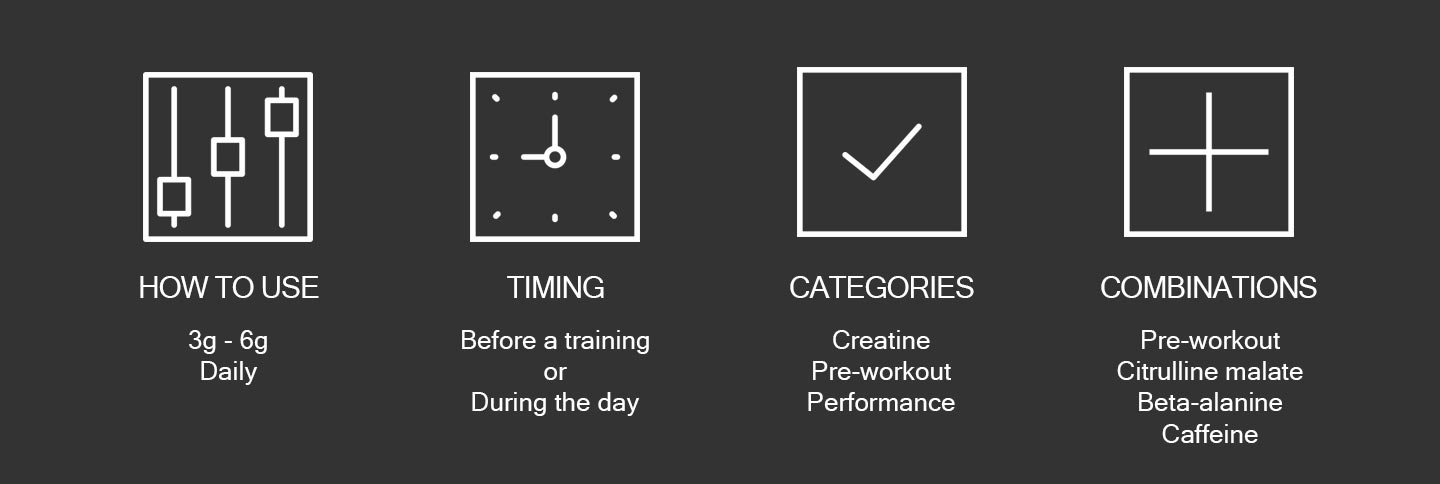
What is creatine loading and should I do it ?
A creatine loading-phase is often not necessary, but could be beneficial in certain situations. During a creatine loading-phase, users should consume larger amounts of creatine when they start using a creatine supplement. A loading-phase is used in order to get the benefits of this supplement as fast as possible. Normal dosages of creatine will also allow users to take full advantage of the benefits of a creatine supplement. However, this may take a bit longer. When a creatine loading phase is used, users can usually experience the full benefits after 5-7 days [7][14]. When users consume 3 grams of creatine daily, it may take up to 28 days in order to experience the full benefits [15]. Therefore, a loading-phase is recommended if the users would like to experience the full benefits as fast as possible.
Creatine loading can be done by consuming 20-25g creatine per day, for 5-7 days. This amount should be consumed by using smaller doses throughout the day (e.g., four to five servings of 5g daily). Creatine loading can also be done based on body mass. In this case, users should consume 0.3g of creatine per kg of body mass for 5-7 days. (i.e., 24g daily for a 80kg person). When this method is chosen, users should also preferably consume the daily recommended amount by consuming smaller doses throughout the day. After completing the creatine loading phase, users can follow a daily maintenance phase, which is the normal recommended 3-6g creatine per day.
Stacking / combining
Creatine can be perfectly combined with many other supplements. Many people choose to combine it with beta-alanine, since research indicates that beta-alanine and creatine work well in conjunction with one another [16][17][18]. Furthermore, many people use it in conjunction with a pre-workout supplement or a protein shake. However, there are many more suitable combinations possible.
Where does creatine come from ?
A small amount of creatine can be created by our body, it is estimated that this is approximately 1 gram of creatine per day. Creatine can also be found in the food we consume. It is mainly found in red meat and seafood. Therefore, a creatine supplement may be even more beneficial for people who are on a plant-based diet.
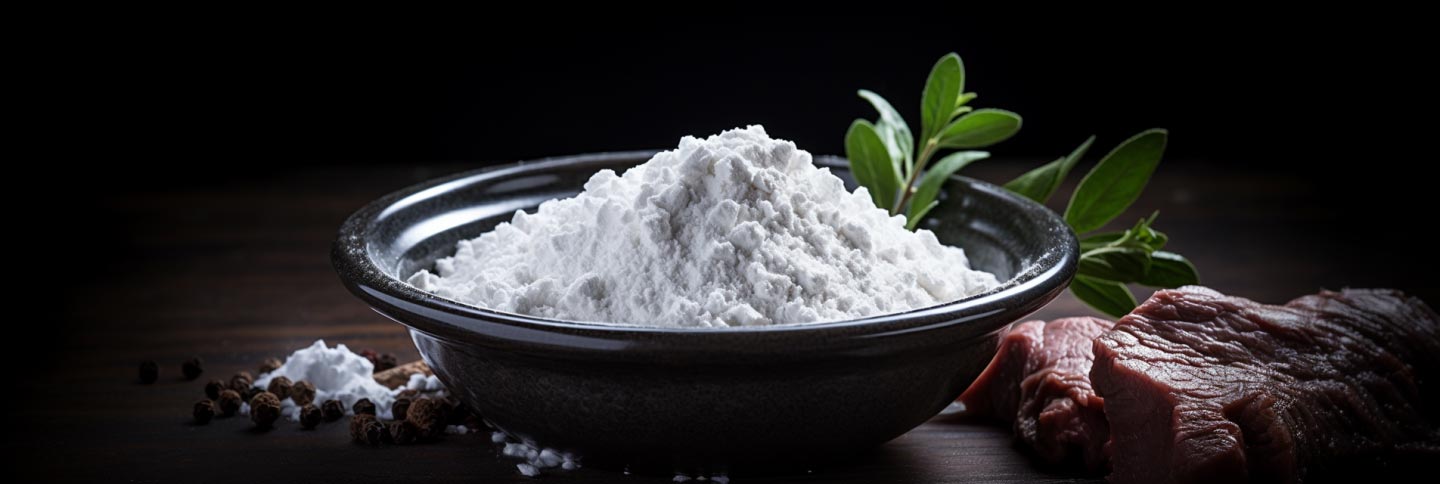
Other information
Does creatine cause water retention
Water retention is a common adverse effect of creatine which can occur during the first few days of consumption [19][20]. However, several studies suggest that creatine does not alter total body water relative to muscle mass over longer periods of time [21][22].
Which type of creatine is recommended
Nowadays, there are several types of creatine available. Some of these newer forms may be more soluble than creatine monohydrate when being mixed. However, creatine monohydrate is still often the recommended type. Creatine monohydrate is often recommended and preferred, due to its proven effectiveness [1]. Newer types of creatine often lack the research in order to prove the possible effectiveness. Furthermore, monohydrate is often cheaper than other types.
How important is it to consume creatine daily
Different studies have shown that creatine consumption on both exercise and rest days can help to get the most benefits. However, it is not an issue if users don’t consume it for a day, since this will not significantly affect the effectiveness of creatine. If creatine is not consumed for a few days, a new loading phase is not required. Another loading phase should only be considered if consumption was stopped for atleast one month.
Should creatine consumption be cycled
Based on current research, creatine cycling is not necessary. Cycling a supplement is mainly beneficial if users can build a tolerance toward it. However, our body does not build a tolerance toward creatine. Therefore, cycling this supplement is not required. Furthermore, it has also been proven that creatine is safe for long-term consumption. It is also important to note that cycling creatine will cause unnecessary fluctuations in our creatine stores.
Safety & competitive use
Safety
Creatine has been studied for many years. Numerous studies have supported its safety, also for long-term use [7]. Studies of up to 5 year use, have found no adverse effects in healthy individuals [7][23][24]. The safety of creatine should not be surprising since excess creatine is harmlessly filtered and excreted into urine [25].
Competitive use
Due to the benefits, creatine supplements are very popular among both amateur and professional athletes. The use of this supplement is allowed and will not result in problems.
Correct use
A dietary supplement can contribute to a healthy and active lifestyle. However, it should not be a substitute for a healthy lifestyle and a varied diet. The recommended dosage should not be exceeded, since side effects may occur otherwise.
As with any supplement, we advise users to consult a physician before use. In particular if you use medication or have health complaints. This product should not be used by women who are pregnant or breastfeeding. Furthermore, this product should not be used by persons under 18 years of age and must be kept out of the reach of children. Keep this product in a cool and dry place to maintain the quality.
References
- Antonio, J., Candow, D. G., Forbes, S. C., Gualano, B., Jagim, A. R., Kreider, R. B., … & Ziegenfuss, T. N. (2021). Common questions and misconceptions about creatine supplementation: what does the scientific evidence really show?. Journal of the International Society of Sports Nutrition, 18(1), 13.
- EFSA Panel on Dietetic Products, Nutrition and Allergies (NDA). (2011). Scientific Opinion on the substantiation of health claims related to creatine and increase in physical performance during short‐term, high intensity, repeated exercise bouts (ID 739, 1520, 1521, 1522, 1523, 1525, 1526, 1531, 1532, 1533, 1534, 1922, 1923, 1924), increase in endurance capacity (ID 1527, 1535), and increase in endurance performance (ID 1521, 1963) pursuant to Article 13 (1) of Regulation (EC) No 1924/2006. EFSA Journal, 9(7), 2303.
- Cooke, M. B., Rybalka, E., Williams, A. D., Cribb, P. J., & Hayes, A. (2009). Creatine supplementation enhances muscle force recovery after eccentrically-induced muscle damage in healthy individuals. Journal of the International Society of Sports Nutrition, 6(1), 13.
- Santos, R. V. T., Bassit, R. A., Caperuto, E. C., & Rosa, L. C. (2004). The effect of creatine supplementation upon inflammatory and muscle soreness markers after a 30km race. Life sciences, 75(16), 1917-1924.
- Greenwood, M., Kreider, R. B., Melton, C., Rasmussen, C., Lancaster, S., Cantler, E., … & Almada, A. (2003). Creatine supplementation during college football training does not increase the incidence of cramping or injury. Molecular and cellular biochemistry, 244(1), 83-88.
- Engelhardt, M., Neumann, G., Berbalk, A., & Reuter, I. (1998). Creatine supplementation in endurance sports. Medicine and science in sports and exercise, 30(7), 1123-1129.
- Kreider, R. B., Kalman, D. S., Antonio, J., Ziegenfuss, T. N., Wildman, R., Collins, R., … & Lopez, H. L. (2017). International Society of Sports Nutrition position stand: safety and efficacy of creatine supplementation in exercise, sport, and medicine. Journal of the International Society of Sports Nutrition, 14(1), 18.
- Ribeiro, F., Longobardi, I., Perim, P., Duarte, B., Ferreira, P., Gualano, B., … & Saunders, B. (2021). Timing of Creatine Supplementation around Exercise: A Real Concern?. Nutrients, 13(8), 2844.
- Candow, D. G., & Chilibeck, P. D. (2008). Timing of creatine or protein supplementation and resistance training in the elderly. Applied Physiology, Nutrition, and Metabolism, 33(1), 184-190.
- Forbes, S. C., & Candow, D. G. (2018). Timing of creatine supplementation and resistance training: A brief review. Journal of Exercise and Nutrition, 1(5).
- Forbes, S., Waltz, X., & Candow, D. (2014). Creatine timing on muscle mass and strength: appetizer or dessert. Agro. Food Ind. Hi. Tech, 25(4), 19-21.
- Jurado-Castro, J. M., Navarrete-Pérez, A., Ranchal-Sánchez, A., & Ordóñez, F. M. (2021). Optimum timing in creatine supplementation for improved sporting performance. Arch Med Deporte, 38(1), 48-53.
- Antonio, J., & Ciccone, V. (2013). The effects of pre versus post workout supplementation of creatine monohydrate on body composition and strength. Journal of the International Society of Sports Nutrition, 10(1), 36.
- Cooper, R., Naclerio, F., Allgrove, J., & Jimenez, A. (2012). Creatine supplementation with specific view to exercise/sports performance: an update. Journal of the International Society of Sports Nutrition, 9(1), 33.
- Hultman, E., Soderlund, K., Timmons, J. A., Cederblad, G., & Greenhaff, P. L. (1996). Muscle creatine loading in men. Journal of applied physiology, 81(1), 232-237.
- Hoffman, J., Ratamess, N., Kang, J., Mangine, G., Faigenbaum, A., & Stout, J. (2006). Effect of creatine and ß-alanine supplementation on performance and endocrine responses in strength/power athletes. International journal of sport nutrition and exercise metabolism, 16(4), 430-446.
- Saxvanderweyden, M., & Willoughby, D. S. (2018). Creatine and Beta-Alanine Supplementation for Increased Anaerobic Performance in Sprinting, Jumping, and Throwing Track and Field Athletes. Journal of Exercise and Nutrition, 1(4).
- Stout, J. R., Cramer, J. T., Mielke, M., & O’Kroy, J. (2006). Effects of twenty-eight days of beta-alanine and creatine monohydrate supplementation on the physical working capacity at neuromuscular fatigue threshold. Journal of strength and conditioning research, 20(4), 928.
- Hall M, Trojian TH. Creatine supplementation. Curr. Sports Med. Rep. 2013;12:240–4.
- Rosene, J. M., Matthews, T. D., Mcbride, K. J., Galla, A., Haun, M., Mcdonald, K., … & Farias, C. (2015). The effects of creatine supplementation on thermoregulation and isokinetic muscular performance following acute (3-day) supplementation. The Journal of Sports Medicine and Physical Fitness, 55(12), 1488-1496.
- Andre TL, Gann JJ, McKinley-Barnard SK, Willoughby DS. Effects of five weeks of resistance training and relatively-dosed creatine monohydrate supplementation on body composition and muscle strength and whole-body creatine metabolism in resistance-trained males. Int J Kinesiol Sports Sci. 2016;4:28–35.
- Jagim, A. R., Oliver, J. M., Sanchez, A., Galvan, E., Fluckey, J., Riechman, S., … & Kreider, R. B. (2012). A buffered form of creatine does not promote greater changes in muscle creatine content, body composition, or training adaptations than creatine monohydrate. Journal of the International Society of Sports Nutrition, 9(1), 43.
- Schilling, B. K., Stone, M. H., Utter, A., Kearney, J. T., Johnson, M., Coglianese, R., … & Stone, M. E. (2001). Creatine supplementation and health variables: a retrospective study. Medicine and science in sports and exercise, 33(2), 183-188.
- Kreider, R. B., Melton, C., Rasmussen, C. J., Greenwood, M., Lancaster, S., Cantler, E. C., … & Almada, A. L. (2003). Long-term creatine supplementation does not significantly affect clinical markers of health in athletes. Molecular and cellular biochemistry, 244(1), 95-104.
- Naderi, A., De Oliveira, E. P., Ziegenfuss, T. N., & Willems, M. E. (2016). Timing, optimal dose and intake duration of dietary supplements with evidence-based use in sports nutrition. Journal of exercise nutrition & biochemistry, 20(4), 1.
Author

| Weight | N/A |
|---|---|
| Ingredient | Creatine monohydrate |
| Serving size | Consume 1-2 leveled scoops (3g-6g) daily. Mix with ~100ml of water, juice, sports drink, or with a pre-workout shake. The recommended intake moment is around the time of exercising. On non-training days, it can be consumed in combination with a meal at a desired time. |
| Allergens | None |
| Suitable for | Non-vegetarians, vegetarians and vegans |
| Warning | Food supplements shouldn't replace a varied, balanced diet and a healthy lifestyle. Do not exceed the recommended daily intake. Store cool, dry and keep out of reach of children. Do not use during pregnancy or lactating. Always consult a docter before you start using a dietary supplement, especially if you use medication or have health problems. |


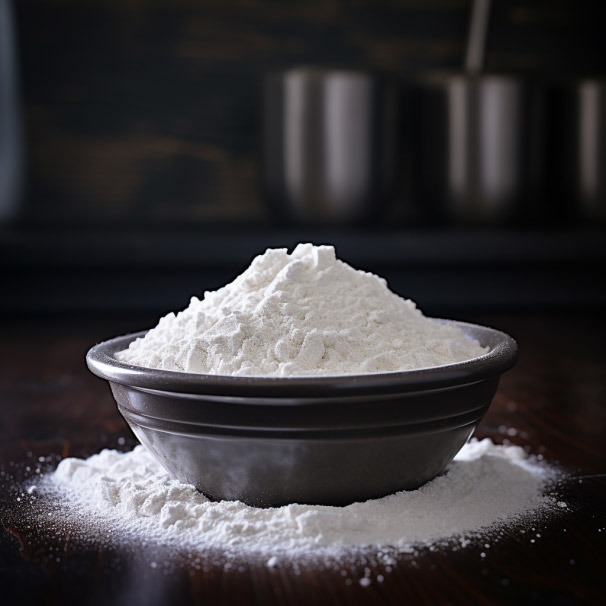

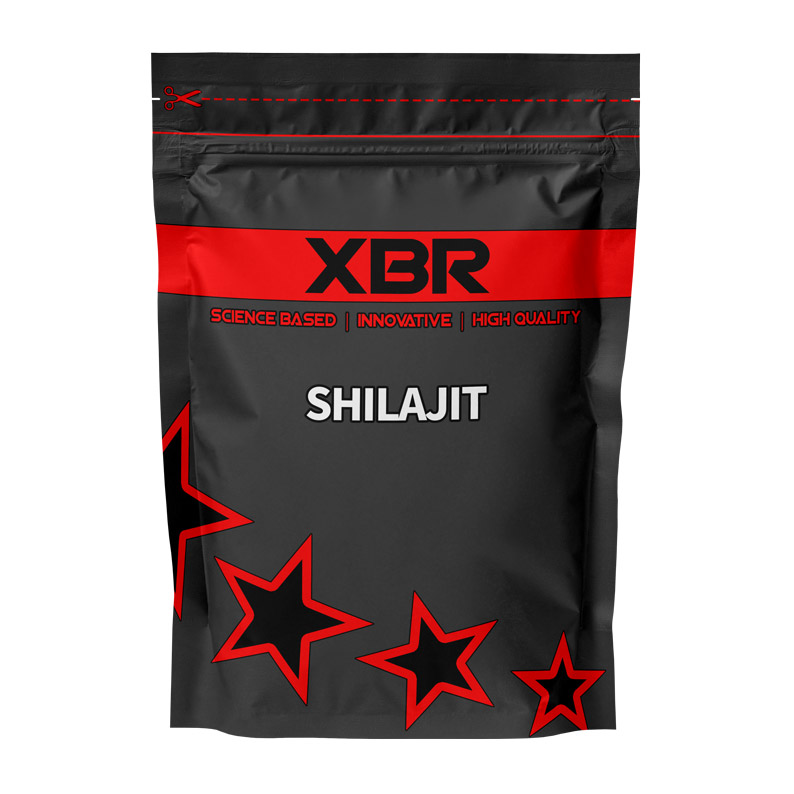
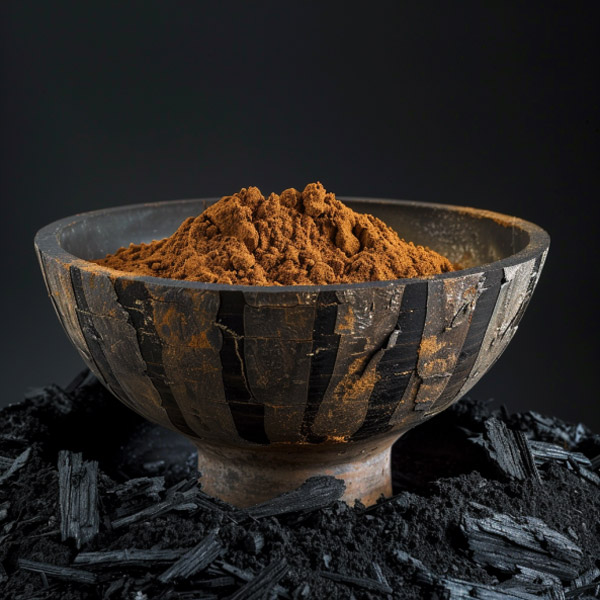
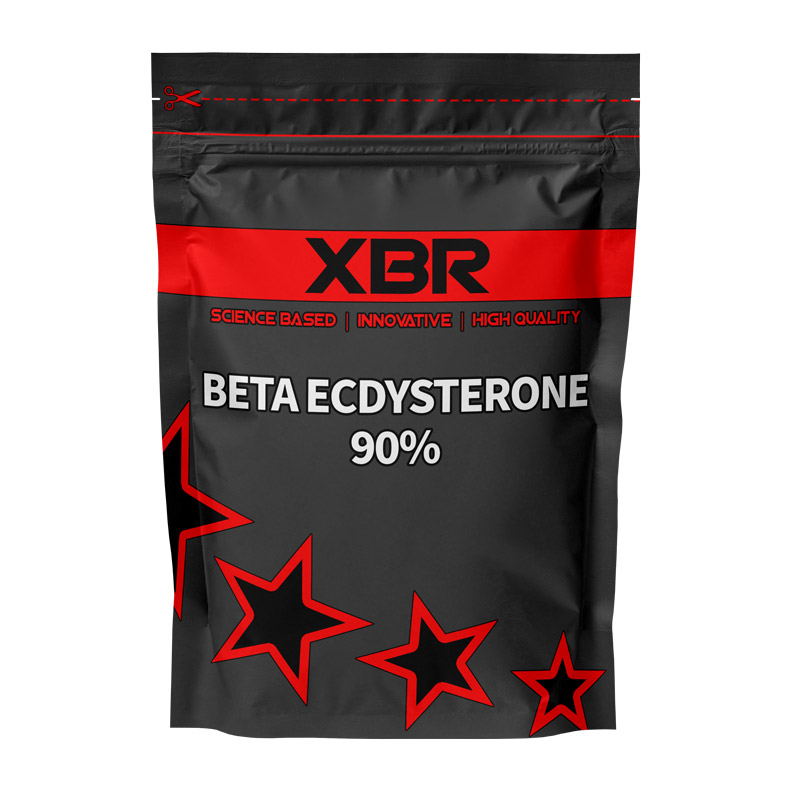
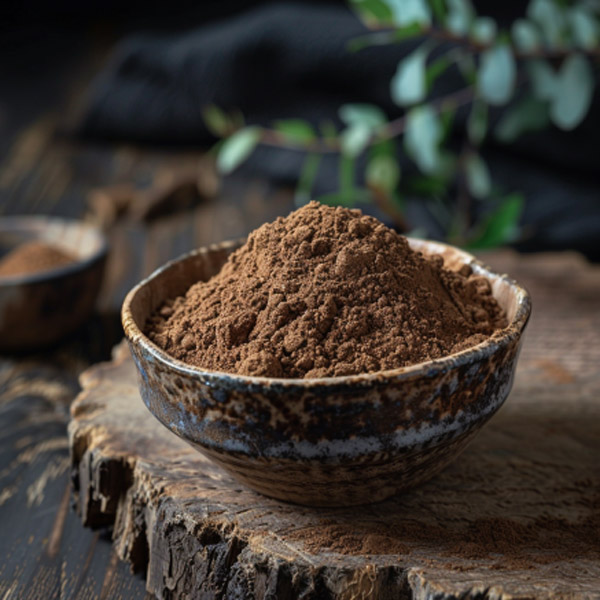


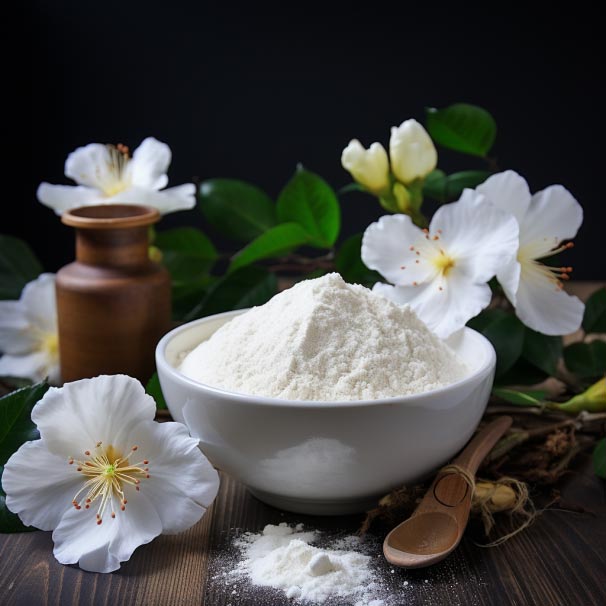
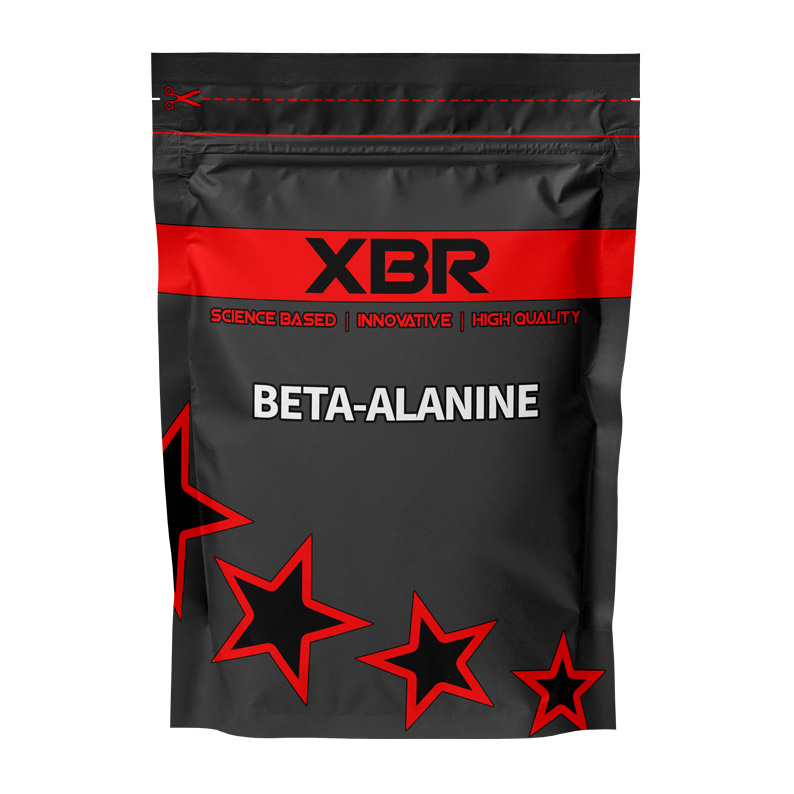
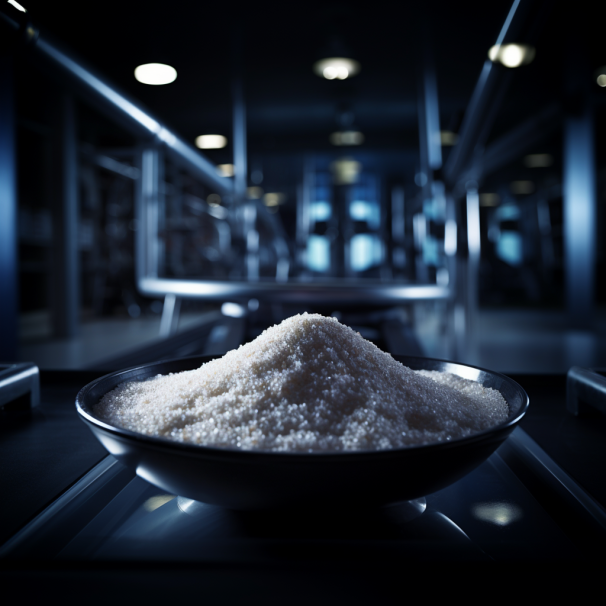
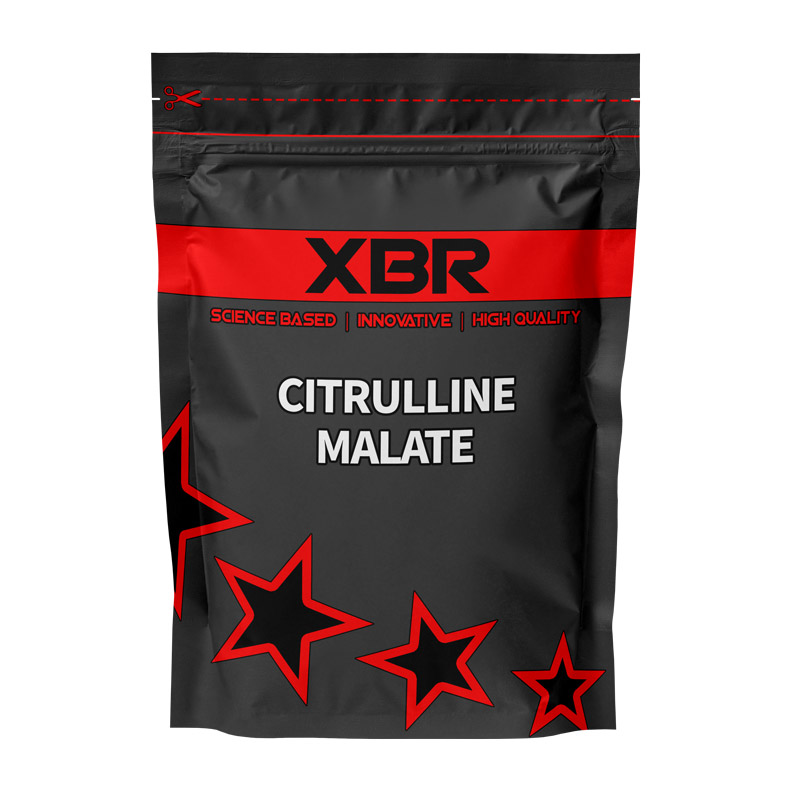
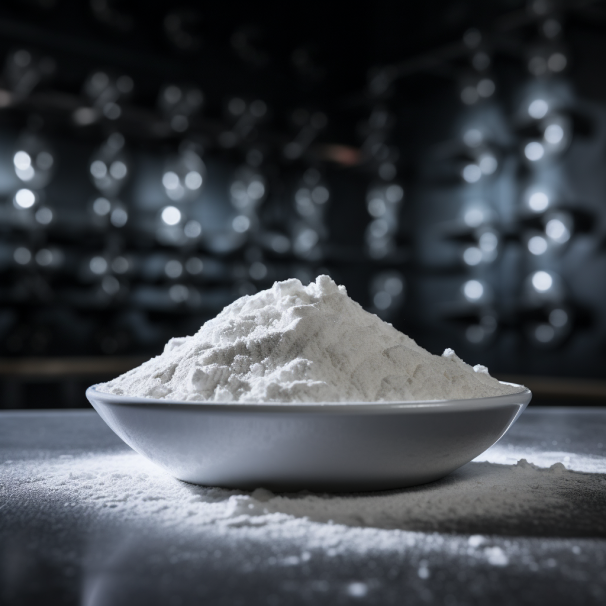


Anonymous –
Sehr gute Qualität und scoop